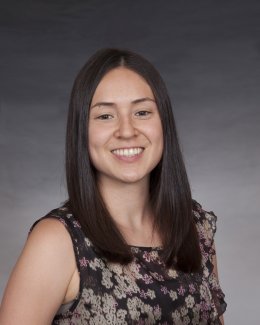Adrienne Rodriguez
Aquatic Ecology Intern
Project: Revealing lake ecosystem function from bathymetric, hydrologic, and land use modeling in ArcGIS
Adrienne's Mentors: Charlotte Roehm, Melissa Slater, Jennifer Everhart

About Adrienne
Adrienne Rodriguez graduated in 2014 from North Carolina State University, with a major in environmental technology and management, and a certificate in GIS. with a passion for the environment and just about anything concerning water, Adrienne spent her summer internship at NEON learning about limnology and developing her GIS skills. For her, “NEON has been really great, and has helped me grow all-around as a person and a professional.”
Q&A
Not really. But now that I have looked at NEON I realize that in order to really understand the environment you need to know the components of ecology and how everything connects.
I always liked understanding how things work with cause and effect relationships. When I was young, my father helped me realize that appreciating the environment is really important because it provides everything we need to live. So I was always a nature-lover, but it wasn’t until college that I realized I actually wanted to study science and the environment.
Yes, but probably not as a research scientist. I am more interested in science technology and environmental technology. Looking at ways to help build our understanding of the world.
It refined my idea of what I want to do career-wise in the sciences. Plus, it bettered me as a person, both on a personal and professional level. I really grew professionally because the environment here at NEON is one of mutual respect and ongoing improvement.
This might sound cheesy, but the relationships I have built with the other interns have been one of the best parts for me. We are all here together learning from each other. Also, the relationships with my mentors have been really beneficial.
I learned something that was really new to me this summer. Integrating the language of limnology into my overall understanding of environmental science has definitely been a challenge. Just learning to be comfortable with talking about a new topic that I a not quite a master of yet.
Yeah, definitely. What other organization is studying what NEON does on this kind of scale? The fact that NEON is trying to better our society and world is a really cool purpose. For people who are interested in the environment or in ecology, I would definitely encourage you to apply.